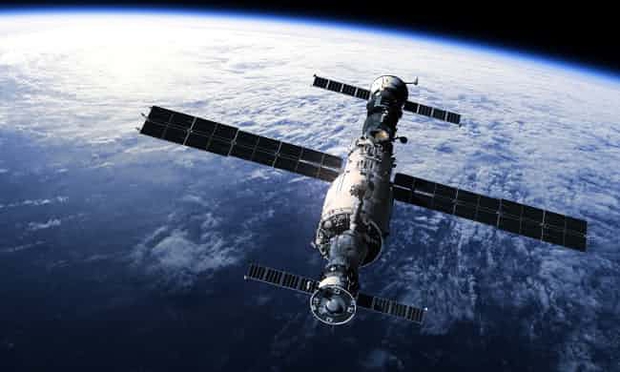Out of control in 2016, this space station slowly disintegrates and falls to Earth.
According to The Guardian, China’s Thien Cung 1 space station tends to accelerate the decay process and return to Earth’s atmosphere at a very high speed. It is expected that within a few months the collision of the 8.5-ton space station with the ground will occur.
Tian Cung 1 space station – the pride of China in 2011
We know that the Tian Cung 1 is the first Chinese space station, launched in 2011 and nicknamed a symbol of the country’s ambition to conquer the universe.
But in 2016, Chinese scientists were forced to confirm that they had lost control of Heavenly Palace 1 and expected it to collide with Earth in 2017 or 2018.
Since then, the space station has gradually collapsed and, according to recent research, the rate of the station’s disintegration accelerated, making the moment of collision earlier than expected.
“Currently, it (the space station) descends into the atmosphere, at a distance of 300 km. The thicker the atmosphere, the faster the decay process” – said Jonathan McDowell, University Floating Language Astrophysicist from Harvard.
“I guess in a few months – late 2017 or early 2018 – the crash will happen.”
Most parts of Heavenly Palace 1 will be burnt in the event of a fall
In theory, most parts of Heavenly Palace 1 will be burnt down if dropped. However, McDowell warns that some parts weighing up to 100kg are likely to strike us.
The possibility of injuring people as a result of this incident would be extremely low, but Chinese scientists say they will follow very closely, via a notification to UNDOOSA (United Nations Office of Space Operations). .
According to McDowell, at this time, it is not possible to predict where the station will fall. “It’s really unpredictable, even if it was only a few days before the crash. We didn’t know it until 6 or 7 hours before.”
In fact, this is not the first time that a space station has lost control and has fallen to Earth. As NASA’s Skylab satellite is an example, when debris falls in the Indian Ocean and Western Australia. Or in 1991, the Soviet space station Salyut 7 also crashed on our planet. In both cases, there were no casualties.



